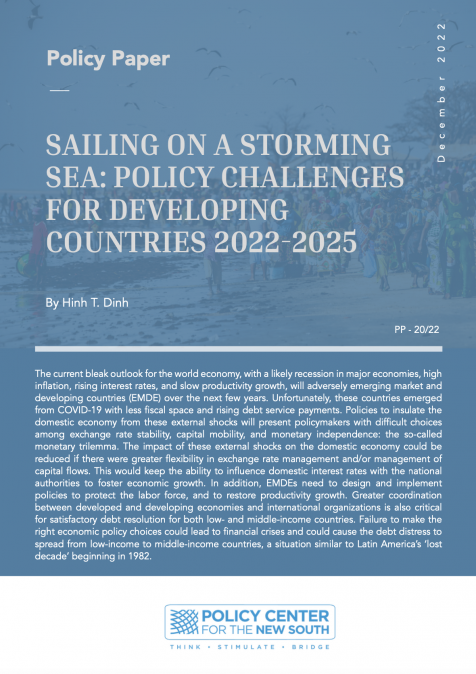Publications /
Policy Paper
The current bleak outlook for the world economy, with a likely recession in major economies, high inflation, rising interest rates, and slow productivity growth, will adversely emerging market and developing countries (EMDE) over the next few years. Unfortunately, these countries emerged from COVID-19 with less fiscal space and rising debt service payments. Policies to insulate the domestic economy from these external shocks will present policymakers with difficult choices among exchange rate stability, capital mobility, and monetary independence: the so-called monetary trilemma. The impact of these external shocks on the domestic economy could be reduced if there were greater flexibility in exchange rate management and/or management of capital flows. This would keep the ability to influence domestic interest rates with the national authorities to foster economic growth. In addition, EMDEs need to design and implement policies to protect the labor force, and to restore productivity growth. Greater coordination between developed and developing economies and international organizations is also critical for satisfactory debt resolution for both low- and middle-income countries. Failure to make the right economic policy choices could lead to financial crises and could cause the debt distress to spread from low-income to middle-income countries, a situation similar to Latin America’s ‘lost decade’ beginning in 1982.








